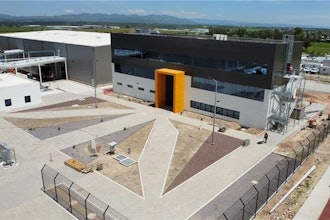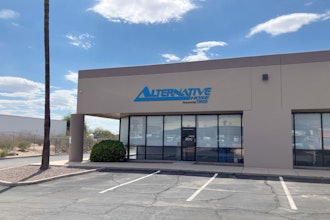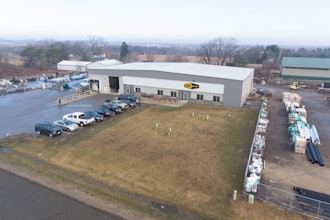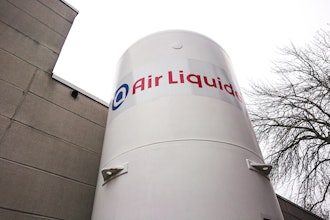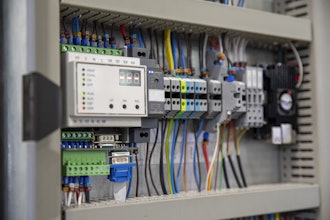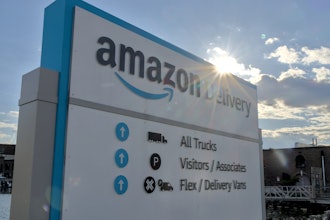
Brought to you by:
PAGE 2 | EPICOR
FOR DISTRIBUTORS, IT’S
SUCCESSION OF THE FITTEST
Succession planning used to be a straightforward process
of finding and developing new leadership talent to
quickly take the helm when current leaders leave for
other opportunities, retire after many years of guiding the
company growth, or pass away suddenly.
The idea always has been to keep the upward momentum
progressing without a break in company mission and
focus, assuring staff and customers that it will be business
as usual from day one.
Often succession planning became a family affair, with
a daughter, son, or multiple relatives taking over key
leadership roles as an older parent or relative stepped
aside after decades of building a successful business.
But, that was so 20 years ago. Baby Boomers are at or
nearing retirement, Generation Xers and Millennials are
more inclined to leave for new employment in a healthier
economy, and the up-and-coming newest generation
of workers are driven by technology, but less likely to
embrace the hands-on knowledge of managing a
supply chain.
Today, succession planning goes well beyond having
the right leaders in place. It requires state-of-the-art
management and succession planning tools, along with
the latest technology available to assure business growth
and future success.
New technology with cloud computing capability,
integrated connectivity, artificial intelligence, business
intelligence, and business management software set
the stage for future success in the changing distribution
environment, even in the face of inevitable top-level
executive retirements and potential mergers, acquisitions,
and divestitures.
POTHOLES ALONG THE ROAD
Without proper succession planning, numerous potential
pitfalls and potholes line the road ahead.
According to Todd Feuerman, director of audit &
accounting at Baltimore-based Ellin & Tucker and an
expert on succession planning who participated in a
recent Industrial Distribution webinar, points out several
of those possible pitfalls:
• Most transitions of family-owned companies are
not successful;
• There often is a lack of trust and communication
between the current owners and the future
successors/owners;
• Often times, the successors are ill-equipped to handle
the transition due to a lack of understanding of what is
needed to succeed and a lack of management, financial,
sales, leadership, and entrepreneurship skills;
• A study performed by PWC revealed that more than
33 percent of all privately held businesses will be sold or
transitioned in the next five years;
• Banks are very cautious about providing financing in
equity sale transactions.
Feuerman says a good succession plan starts with those
you know and trust, like professional advisors, financial
partners, key family members, and key employees.
He also suggests a series of considerations that should
be evaluated during any succession process, including:
determining the value and certainty of realizing value
from the company; assessing the management capability
of the next-generation leadership; identifying gaps in
required talent; and workflow continuation during the
transition process.
PROTECTING DISTRIBUTOR VALUE
For successful transitions, distributors need to take
advantage of the increasing advances in technology in
order to maintain company value, keep their businesses
growing, and remain focused on the future when faced
with a sudden loss in top leadership, passing a family
owned business over to the next generation, or deciding
to take advantage of a potentially lucrative offer to sell
the operation.
The problem is that many distributors fail to consider
the critical importance of the technology back-end in
their succession planning strategies until it’s too late and
they’re forced to make hasty decisions that affect day-to-
day operations, lose focus on company value, and cause
long-term harm to the business.
Today’s advanced technology systems are designed
to optimize distributor inventory, drive employee
productivity, turn manual functions into highly efficient
automated processes, streamline all operations, anticipate
upcoming business opportunities, build revenues, and
boost the bottom line.
PAGE 3 | EPICOR
“When I talk about infrastructure and technology as the
major part of succession planning, I’m talking soup to
nuts,” says Epicor Software Vice President of Sales Frank
Heenan, “meaning their web presence, their back-end
ERP, their phone systems, their desktop applications,
what the back strategies look like, whether their ‘iron’—or
hardware—is onsite or offsite, what their disaster recovery
strategies look like, really buttoning up the technology
driving the organization for that next generation
of ownership.”
FINDING CLARITY IN THE CLOUD
In such a rapidly changing environment, one huge leap
distributors should consider taking is fully utilizing cloud
computing and the benefits of Software-as-a-Service
(SaaS), essentially a subscription-based system for ERP
and other software rather than maintaining time-intensive
and costly resources to maintain the hardware and
software on-site.
With SaaS in the cloud, software providers like Epicor
can remove the burden of updating hardware and
software from the distributor, assuring that equipment
and programs continually are up-to-date; allowing the
internal IT department to focus attention on other critical
programs; and giving sales and support staff access
to the same data and information across all channels,
departments, and locations.
As cloud computing rapidly becomes the norm in
industrial circles, the question for distributors is when, not
if they will adopt the efficiency and cost effectiveness of
the cloud in their operations, including the ERP software
they use for managing inventory.
With more than 75 percent of prospects inquiring about
cloud ERP today, Epicor has expanded its strategic
partnership with Microsoft to launch cloud deployment
of its ERP product suite on Microsoft Azure, a highly
acclaimed platform noted for the reliability, security,
and scalability that allows distributors to make the cloud
transition with confidence.
In the cloud, everyone in the organization sees the same
information and operates according to one version
of data, empowering faster collaboration among
departments, eliminating confusion over separate sets of
data, and reducing complexity.
That type of system-wide integration of data and
connectivity across all systems is of paramount
importance in boosting productivity, staying on track for
future growth, and preserving company value—critical in
succession planning especially in the event of changes in
management and/or ownership.
DISTRIBUTOR 911: SECURING SUCCESS
Another benefit of moving to the cloud involves security
and disaster recovery, both of which are maintained by
the host provider, not the distributor. “It comes down
to whether the distributor is comfortable not having the
iron and the database in its facility,” says Heenan. “Once
they’re comfortable with that, they have to make the
decision whether they want to rent via SaaS subscription
in the cloud or own the asset.”
From the standpoint of disaster recovery protection and
the importance of maintaining systems off-site and in
the cloud, it’s influenced somewhat by vulnerabilities in
particular pockets of the country.
For example, distributors in the West consider the threat
caused by earthquakes, in the Southeast it’s hurricanes
and flooding, and in the Midwest it’s concern over
tornadoes. While the Northeast doesn’t face as much
of a threat from those catastrophic events, other factors
weigh in to the decision to go cloud-based, including
damage caused by an employee, either intentionally or
unintentionally, a random lightning strike frying a chip on
a server, or a fire at the facility.
OPTIMIZATION THROUGH TECHNOLOGY
In short, use of cloud computing gives distributors in
today’s highly competitive environment heading into
the 2020s an opportunity to spend less time searching
for answers and more time concentrating on customers,
employees, and strategic initiatives aimed at growing
the business.
Other advancements in technology that continue to
disrupt the distribution sector include the increasing use
of artificial intelligence, machine learning for analyzing
and predicting customer demand, along with optimizing
inventory and employing speech recognition for quick,
efficient voice-picking techniques.
Distributors not yet on the technology train are quickly
falling behind their tech savvy competitors, including
e-commerce giants like Amazon.
Highly sophisticated business intelligence and business
management software, along with integrated systems
and instant data analysis, helps the smart distributor
identify new markets and opportunities well in advance
of reactive competitors that continue to struggle with
different spreadsheets, conflicting data sets, and manual,
customer-unfriendly processes.
PAGE 4 | EPICOR
PROPHET ECLIPSES COMPETITION
Today’s sophisticated business and management
software also simplifies workflow, satisfies increasing
customer demands, and optimizes virtually every
segment of the distribution business.
One such system, Epicor’s Prophet 21, integrates a full
range of supply chain management capabilities that
enable business growth through purchase management,
sourcing and procurement, inventory management,
advanced material management, and warehouse
management features.
It’s an intuitive series of high-tech formulas to identify
the unique demand patterns of every product in
stock; detect seasonal or trending items; centralize
the purchasing process to optimize buying power and
inventory levels; allow distributors that provide certain
value-added services to process raw materials within
a production order; provide warehouse management
tools for greater control and efficiency; and lower
carrying costs while offering customers the added
convenience of vendor managed inventory.
“We’ve always tried to build our company for the future,”
John Wiborg, founder and president of Tacoma, WA-
based Stellar Industrial Supply, commented in a case
study focused on accuracy and efficiency. “So while
it would have been easier to just stay with (an earlier
product), we knew that Prophet 21 had a more favorable
architecture that made it better suited for evolution and
development. We invested in the solution as much for
what it could do at the time, as for what it would be able
to do down the road.”
Looking to gain speed, efficiency, and simplicity in the
warehouse, Stellar Industrial also implemented Epicor’s
Wireless Warehouse Management Solution (WWMS),
a wireless solution that integrates seamlessly with the
Prophet 21 system.
WWMS streamlines warehouse processes, increases
control over warehouse tasks, and improves customer
service. The company reported that it shut its old system
on a Friday and was up and running with WWMS on
Monday with a short learning curve.
When asked at the time what aspect of Stellar’s business
WWMS has affected the most, Wiborg said,
“inventory accuracy.”
Meanwhile, Epicor Eclipse is an ERP system that can
optimize a distributor’s entire business. The technology
is designed for a wide range of suppliers, including
those distributing electrical, plumbing, HVAC, and
PVF products.
It anticipates shifting customer demands and
preferences, drives process efficiency and productivity,
customizes service and pricing to reduce repetitive
reorder costs, and supplies users with tools for growth.
The Eclipse program helps optimize job management;
e-commerce solutions; access to product and customer
information; strategic pricing; business intelligence and
analytics; along with customer relationship, sales, supply
chain, financial, and wireless warehouse management
offerings. It also lets remote employees access and
manage data from any mobile device.
SUPPLYING THE TOOLS OF COGNIZANCE
It all comes down to incorporating a complete
succession plan that includes both an executive
development strategy and a seamless technology
program designed to protect the ongoing business
when a sudden change occurs in leadership.
“If you have your business affairs in order from top
to bottom, and with the proper technology and
preparation, someone can step in and continue to
operate the business successfully,” says Epicor’s Heenan.
It also allows the distributor to maintain top value
for the company throughout the transition period
and to continue uninterrupted in its mission to serve
its customers, secure new business, and seize new
opportunities for future development.
ABOUT THIS REPORT
The information in this iReport was researched
and produced by Industrial Distribution (Advantage
Business Marketing) in conjunction with Epicor.
Epicor Software Corporation (epicor.com) provides
industry-specific business software designed around
the needs of manufacturing, distribution, retail, and
services organizations. Epicor’s more than 40 years
of experience with its customers’ unique business
processes and operational requirements is built into
every solution—in the cloud, hosted, or on premises.
CONTACT US FOR MORE INFORMATION ON
EPICOR PRODUCTS AND SERVICES:
+1.800.776.7438
[email protected]
epicor.com












